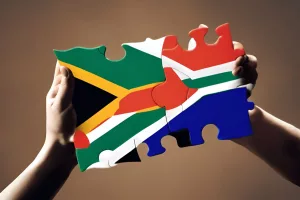Elon Musk’s role in government efficiency efforts, especially during Trump’s time in office, is causing a stir. Even though he wasn’t an official government worker, his strong influence led to legal troubles, with fourteen states arguing he acted beyond his advisory role. Critics worry about one person’s power in the government and how it mixes private business interests with public service. Musk’s actions and connections to his companies, like Tesla and SpaceX, raise questions about transparency and fairness in government. This situation highlights the tricky balance between innovation and democratic accountability in today’s world.
David Ansara, CEO of South Africa’s Free Market Foundation, advocates for selfreliance and minimizing reliance on the government to thrive in 2024. He suggests reducing tax contributions and establishing offshore companies in countries with lenient tax policies, but these strategies require meticulous planning and ethical considerations. Ansara’s guide emphasizes individual and corporate autonomy, critical comprehension of the government’s limitations, and careful financial management. His provocative theories on governmentproofing in South Africa underscore the significance of selfreliance and personal liberties.


